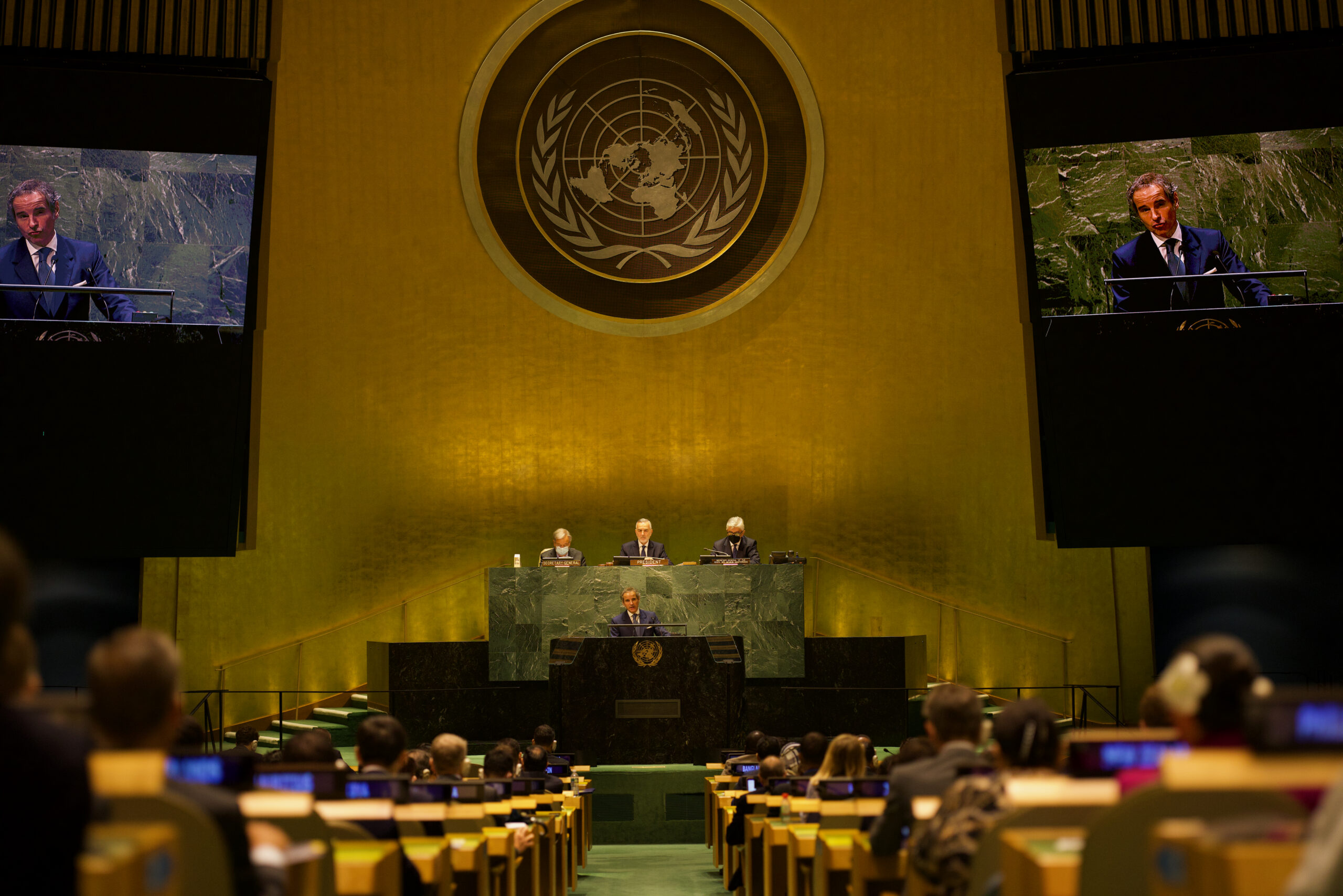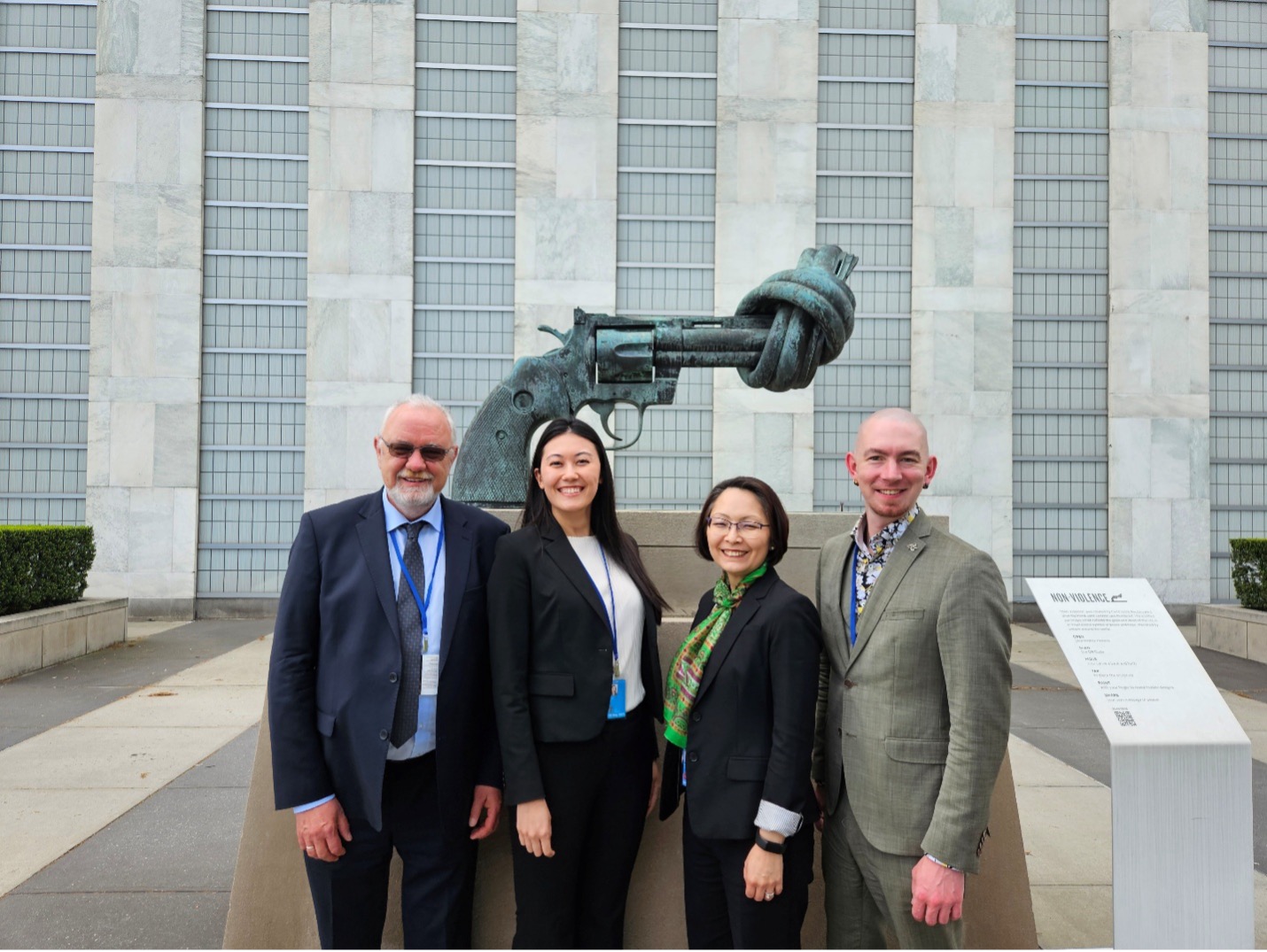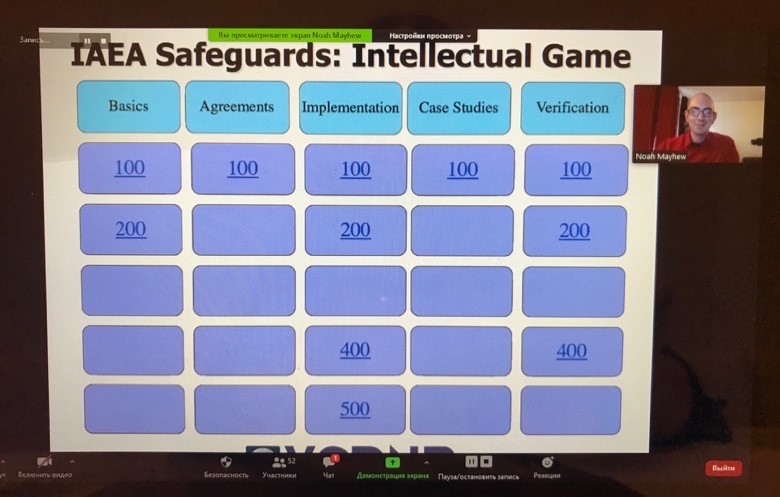
The non-proliferation community continues to find ways to move forward while faced with the reality of teleworking arrangements due to COVID-19. As such, the National Research Nuclear University (MEPhl)’s Science Diplomacy School, the second in its series, was held virtually.
The programme, dedicated to “The NPT: Preserving the Legacy,” took place on 15-16 May 2020. Experts from both the VCDNP and the James Martin Center for Nonproliferation Studies (CNS), along with several graduates from the Middlebury Institute of International Studies at Monterey (MIIS) and Moscow State Institute of International Studies (MGIMO) dual-degree programme in non-proliferation studies, presented to 38 participants and 30 observers from 15 countries.
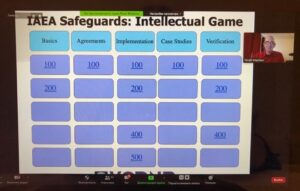
VCDNP Research Associate Noah Mayhew, also a graduate of the MIIS-MGIMO dual-degree programme, engaged the group in a “Jeopardy” style interactive exercise on the International Atomic Energy Agency’s safeguards system that was first prepared for the VCDNP’s “Safeguards for Policymakers: What You Need to Know” short course held in June 2019.
As the designer and host of the activity, Mr. Mayhew quizzed the group on their safeguards’ knowledge, offering questions with varying levels of difficulty with commensurate point values. For example, participants could earn 100 points for correctly defining IAEA safeguards, while 500-points required participants to not only know how many times since 1991 the IAEA’s Board of Governors had requested special inspections in a State, but also identify which State(s) and the outcome(s) of the inspections
Following each question, Mr. Mayhew provided additional information and explanations to supplement students’ knowledge on IAEA safeguards.
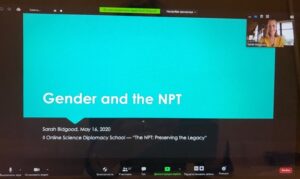
Ms. Sarah Bidgood, Director of the Eurasia Nonproliferation Program at CNS, spoke on the topic of Women in the Treaty on the Non-Proliferation of Nuclear Weapons (NPT). She began her remarks by noting that the lack of gender diversity within arms control, non-proliferation and disarmament was not a new issue. Rather, she suggested, new data quantifying the extent of the problem, paired with a better understanding of why diversity matters to outcomes, have afforded it greater attention in recent years.
Ms. Bidgood traced the recent evolving discourse around gender issues within the NPT context and noted the ways in which it appeared to be moving beyond a focus on equal representation to an emphasis on equal participation and impact. She offered a number of suggestions for how to overcome systemic barriers that have prevented women from having a seat at the nuclear policymaking table, including mentorship, sponsorship and gender mainstreaming that could help translate words into actions.
She concluded by highlighting CNS' efforts to encourage more undergraduate women at US colleges and universities to consider careers in non-proliferation, arms control and disarmament through its Young Women in Nonproliferation Initiative.
In addition, several graduates from the MIIS-MGIMO dual-degree master’s programme presented, including Ms. Daria Selezneva, Mr. Adlan Margoev and Ms. Veronika Bedenko. All three of the graduates are now working in the field of non-proliferation. Two of the presentations focused on the NPT and one looked at geospatial tools for analysis.
Ms. Selezneva provided a retrospective view of the NPT’s negotiation, which included observations on key tensions that prevailed during negotiations and how they have impacted the Treaty and regime today. Particular focus was given to Articles I and II dealing with the transfer of nuclear weapons or other nuclear explosive devices between nuclear-weapon states and non-nuclear-weapon states. Despite a changing international environment, Ms. Selezneva concluded that the NPT continues to be a corner stone of the non-proliferation regime.
Ms. Selezneva is currently a Research Associate at the Institute of World Economy and International Relations (IMEMO).
Mr. Margoev facilitated an interactive discussion on prospects for a final document during the next NPT Review Conference, currently postponed until 2021 due to the COVID-19 pandemic. The participants of the workshop brainstormed key factors that may influence the outcome of the Review Conference, including the prospect of extending the 2010 Strategic Arms Reduction Treaty (New START), acceptance of the Treaty on the Prohibition of Nuclear Weapons by its opponents, and the results of the upcoming presidential elections in the United States.
Participants concluded that the postponement of the Review Conference to 2021 opens new opportunities for the adoption of the final document, much of which depends on the global political climate following the presidential elections in the United States.
Mr. Margoev is an analyst with MGIMO’s Institute for International Studies.
Ms. Bedenko held an interactive session on geospatial tools for non-proliferation analysis, using Kim Jong Un’s first appearance in weeks at the Sunchong Fertilizer Factory as a case study. During the training, participants learned techniques for image geolocation, satellite imagery and open source analysis could be used for verifying data and applied them to rumours about Kim’s re-appearance.
Ms. Bedenko is an analyst with the Open Nuclear Network, a programme of One Earth Future, and also a former VCDNP intern.
As the international community works virtually due to the COVID-19 pandemic, the salience of meetings such as this will only increase. The VCDNP, CNS and other partner organisations will continue to find innovative ways to improve the quality of distance learning and engagement, such as through online training tools like the VCDNP’s online module available below.

